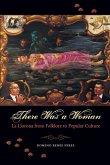"Teleology of Woman" is a compilation of three essays. Two written by Dr. Möbius, one dealing with the differences between male and female heads. "If I am presented with the fresh brains of an adult male and an adult female of any species of animal in water, I will recognize the sex, and I will never be mistaken. In the male the cerebellum is larger, the occipital lobes are smaller, in the female it is the other way round; the questionable turn of the occipital lobes is stronger and especially longer. Likewise, I can determine the sex by the skull if both organs are clearly distinguishable." His other dealing with how the love parents have for their children has an actual location in the brain. "Civilization brings with it a certain dulling of the differences between the sexes, in particular the man becomes softer and shows individual feminine traits. Perhaps this is also expressed in such a way that in civilized peoples, relatively many men are found with a large organ of child love. In any case, this seems to me to occur more frequently than female heads of the male type." The last essay by Max Runge shows the physiological characteristics that make a woman a woman. "Major Leutwein, the governor of Southwest Africa, expressed himself aptly on this point in an open letter to Minna Cauer. The women's movement had demanded that in the colonies women be given the same position as men, i.e., in church, school, community, etc. On the other hand, as Leutwein writes, I have to reply that we men have all been able to deal with this matter up to now. What we cannot manage, however, is the creation of the German domesticity, in which the German housewife lives and works for her husband and children according to the good customs of the past. The women who want to do this may come to us. The others, however, may stay away from us. If the women's movement is transferred to the colonies, there is a danger that the men over there will become marriage-shy or join with native women who do not make such claims."
Hinweis: Dieser Artikel kann nur an eine deutsche Lieferadresse ausgeliefert werden.
Hinweis: Dieser Artikel kann nur an eine deutsche Lieferadresse ausgeliefert werden.








